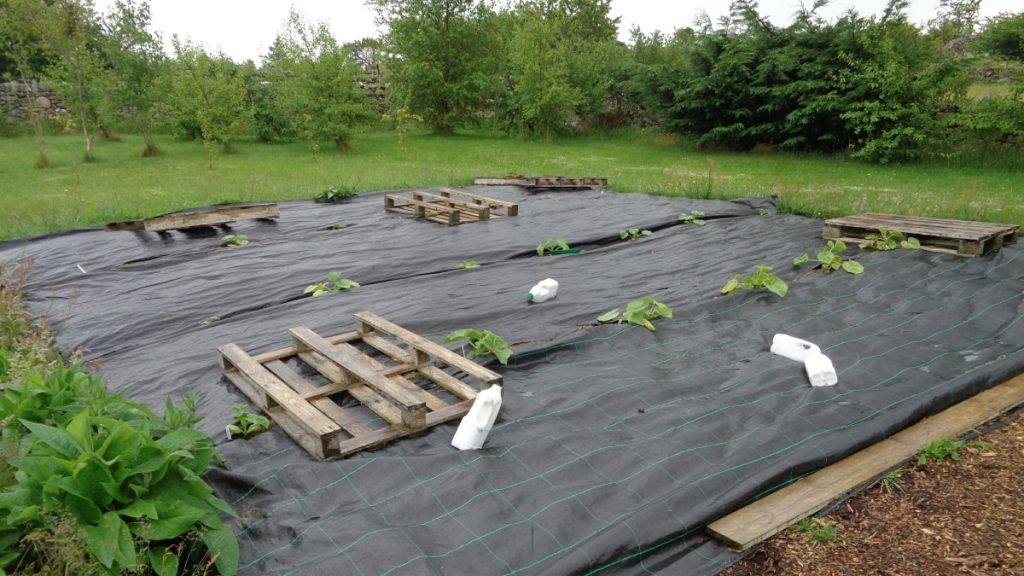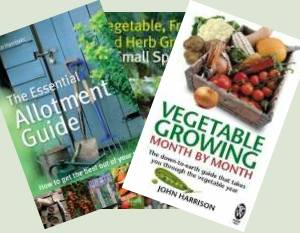One of the effects of this pandemic that is sweeping the world is to disrupt our food production and distribution systems. I’m not talking about the silly panics over loo paper that we saw when this started. That was purely panic buying. What I’m a little concerned about is a deeper problem.
Our modern systems put food on the shelves very cheaply. We in Britain spend a smaller proportion of our income on food than we ever did before. But there is a hidden cost to this – vulnerability. It only takes one link of a chain to break and the system breaks.
Problems with Seeds
The problems start where the growing starts – seeds. Consolidation of suppliers and international supply chains has created a less robust system. Home growers have found getting hold of seeds difficult this year but market gardeners and farmers have had similar difficulties too.
Problems with Labour
Then there’s the effect of COVID on farm workers, many in the UK are temporary foreign workers. Even if they can get here, it’s hardly possible for them to quarantine for a fortnight. The costs alone of having a workforce sitting idle for two weeks makes many crops just not worth harvesting.
Are we Doomed to Starve?
However, despite all this and what you might see on the internet about us all being doomed and going to starve, I don’t think that is the case. I do think we’re going to see significant price hikes though over the next year. Price is a method of rationing – reducing demand.
Home Growing is Vital
But as home growers we can provide food for ourselves and for others. The time to start is now. Bringing new areas into production and getting the soil in good heart isn’t accomplished over night. I was actually planning on cutting back this year. Generally we grow more than we need but if I’m right as to what’s coming, time to expand not contract my growing.
Extra Growing Land
I was fortunate in getting a mountain of sheep manure in February from a local farmer. What I’ve done is to take an area of pasture, mow it tightly down and cover with a layer of cardboard, a thick layer of manure and another layer of grass clippings, cut comfrey and green waste. This was covered with good quality landscape fabric.
By next year the worms will have done their part and the soil below the fabric should be much more fertile, deeper and easier to work. A lot less effort than digging over but a slower process that will still provide extra growing land. I may need to rotavate it next spring but we’ll see then.
Too Many Cucurbits?
I didn’t want to waste the land in the meantime so I’ve planted a load of squashes, pumpkins and a couple of courgettes and outdoor cucumbers that I started in pots between the fabric rows. Apart from watering, that’s it. No additional cultivation at all.
If they produce as I expect then we’ll have far more than we want or need. That’s not bad though, if it comes down to it I’m happy to give them to those in need. And if I’m worrying over nothing, well no harm done. That area will just grow the best grass in Wales!





I believe you are correct in your thoughts about the vulnerability of food supplies. We all need to be preparing now to provide as much as possible for ourselves and some to share. Thank you for the advice. You’ve got me thinking……kind regards.JG
I agree with your concerns. Apparently the Uk only grows about 50% of our food and now we are seeking to make trade deals around the world . Surely every effort should be made to support farmers and growers in this country to increase our food security.
I have been growing my own vegetables for over 50 years and this year, at present I am so pleased with the sprouts, it seems that the plastic weed suppressant I have used in the butterfly proof cage has kept the dreaded whiteflies away, or maybe the masses of targeted around the cage.
I have just planted rainbow chard and turnips and have some insect fresh ready to put over in hopes to deter their pests.
No answer to an invasion of voles since our cat has taken retirement at 17, any suggestions?